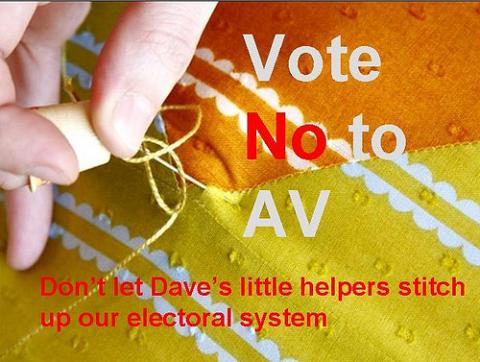British politicians - it's all the cake or none, thanks

Sharing power because the voters have demanded that you do is a concept foreign to the British No2AV crowd. By Jason O'Mahony.
"...and if you're just joining us here on Election 2015, the news is that despite winning over half the votes of the British people between them, the first government to do that since 1931, the Conservative/Liberal Democrat coalition has been ousted by Ed Miliband's Labour party, despite having received less votes than the coalition."
One of the curious factors in the AV debate, and British politics generally, certainly to an outside observer used to election results having some sort of passing resemblance to how voters actually voted (the novelty!), is how all-or-nothing, indeed how "stroppy/adolescent" so many British politicians are. In the US, Canada, Australia, New Zealand, India, South Africa, and indeed all of the European Union, it is perfectly normal for a majority of elected members of a legislature, of differing parties, to sit down and see what deal they can get for the people who elected them. They accept the result, and get down to business, with large parties not surprisingly looking for more than small parties, but if they're not in the majority, accepting that a majority has to be constructed through discussion and trade.
Yet British No2AV politicians have a bizarre "I want ALL of the cake or none!" approach to politics which is just plain odd. There seriously seem to be members of both Labour and the Conservatives who would have turned down the possibility of tempering the other party on, say, the Lisbon Treaty or the Miners Strike rather than concede the principle of possibly sharing power through a system like AV. Imagine having a dentist who told you that he only will pull out all your teeth, or none. It was that sort of moronic behaviour that let Mrs Thatcher piss off Labour people for 11 years, and Blair piss off Tories for a similar period, without being restrained by anyone.
But then, that's the strangest thing about British politics, compared to a non-first past the post system. Under our system, the politicians are afraid of the voters, not vice versa.
